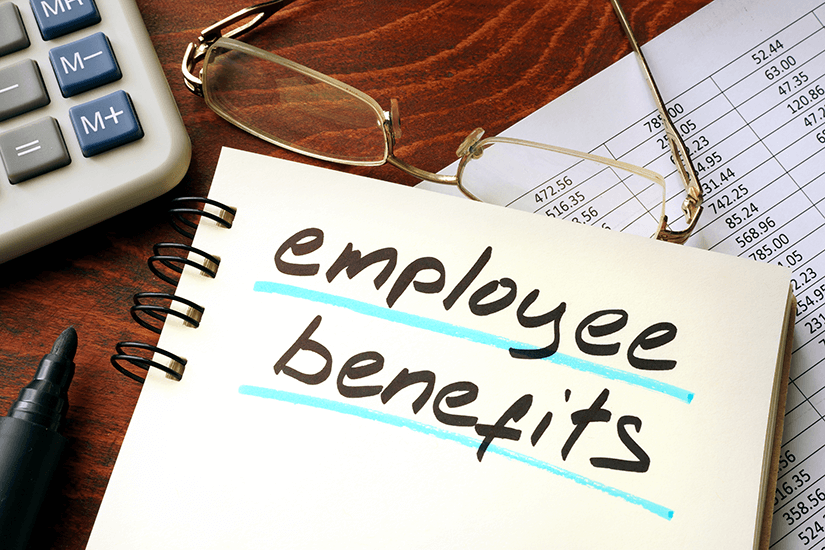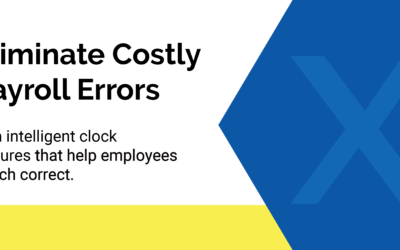3 Things to Consider Before Choosing Benefits Administration Partners
The success of a benefits program depends on how well it’s administered. To improve the outcome, employers often partner with various providers.
Here are three factors to consider before selecting a benefits administration partner:
1. Benefits Administration Models
Benefits administration can be insourced, co-sourced or outsourced, so you’ll need to know which one is appropriate for your business.
Insourcing means you handle your benefits administration tasks in-house via your own internal resources. Outsourcing means you turn over benefits administration to a third-party provider. Co-sourcing is a combination of the two, meaning some tasks are done in-house, and others are outsourced.
In 2012, it was reported, “Most employers of all sizes continue to handle at least some elements of benefits administration internally, although large employers are more likely to outsource benefits administration than are midsized employers.” More recently, in 2019, Bloomberg Tax & Accounting said that most smaller employers (58.8%) at least partially outsource benefits administration.
The most frequently outsourced aspects of benefits administration include:
- Group health administration, as it relates to the Consolidated Omnibus Budget Reconciliation Act (COBRA), Employee Retirement Income Security Act (ERISA) and other related laws.
- Flexible spending account (FSA) administration.
- 401(k) administration.
If you’d like to outsource only routine benefits administration tasks, you can look into an Administrative Services Organization (ASO). But if you want to outsource all of your HR obligations, including benefits, a Professional Employer Organization (PEO) may be a better fit.
2. Third-Party Administrator (TPA)
A Third-Party Administrator is an external company that manages employers’ group benefit plans. TPA services often cover:
-
Analysis and review of benefits providers.
- Cost evaluation and negotiation.
- Plan design and implementation.
- Plan documentation and maintenance.
- Staff education on benefit topics.
- Benefits compliance.
Per the Society of Professional Benefit Administrators (SPBA), a “survey of employers that have in-house benefits managers reports that 79% of employers use TPAs.”
Some TPAs help with multiple types of benefit plans; others specialize in a singular benefit such as retirement plans or group health insurance. Although a TPA can relieve you of the stress associated with high-level benefits administration, it’s important to perform due diligence before choosing one.
3. Benefits Technology
A well-designed benefits platform is key to administrative efficiency and employee participation in the benefits program.
Common features of benefits technology:
- Integrated — streamlines human resources, benefits and payroll administration.
- Benefits compliance — simplifies adherence to benefit laws.
- Communication tools — facilitates open enrollment and benefits education.
- Employee self-service — enables online benefits enrollment and management.
- Analytics and reporting — delivers fast access to reliable benefits data.
- Electronic Data Interchange (EDI) — enhances communication with benefits providers.
When evaluating technology vendors, be sure to examine the platform’s scalability, workflow-automation capabilities and decision-support tools. These characteristics are vital to efficiency, accuracy, compliance and the overall performance of the benefits function.
Copyright 2024
Why Atlantic Payroll Partners
The biggest payroll companies probably won’t have time for your business. It’s that simple, you’ll be a number. At Atlantic Payroll Partners, you’ll be the opposite. We’ll know more than your name; we’ll know the names of your children and their birthday’s as well. We will know you.
We’ve been helping Florida business by managing their payroll and providing workers' compensation quotes for ten years. We help keep payroll cost affordable by provided transparent PEO payroll quotes that allow you to plan your budget accordingly. Like the big payroll companies, you can manage your payroll and payroll timekeeping with us, while reaping the benefits of PEO risk management.
Thinking about payroll outsourcing can be scary. Make sure you know what to expect from payroll outsourcing providers; to make the best decision for your business. In addition to offering payroll, and workers' comp quote we offer: Human Resource consultations, Accounting services, and benefits such as, 401ks and Healthcare plans.
Is Workers’ Comp needed?
Is Workers’ Comp needed? Before we dive into, is workers’ compensation insurance needed, let’s define what it is. Workers’ Compensations is a form of insurance that covers injuries that are a result of a workplace accident – that most employers are required to have. The insurance covers medical and partial wage replacement benefits.
Okay, back to is workers’ comp needed?
The short answer is -it depends. The following information is true when it comes to workers’ compensation coverage in the State of Florida.
Who needs Workers’ Compensation Insurance? Sometimes called, workmen’s compensation insurance.
- Workers’ Comp insurance in Florida is based on the number of employees you have. For example, if you work in construction and have one or more employees, including the owner(s) who are nonexempt, you need workers’ compensation.
- What about a restaurant? If you work in the restaurant industry, or any industry that isn’t considered construction or agriculture related you must have workers’ compensation, if you have four or more employees; this too includes any nonexempt business owners.
Breaking down the math
Let’s pretend you own a pizza restaurant with one of your siblings. In addition to you and your sibling, you have two additional people on staff at a restaurant. The owner and co- owner can be exempt from coverage(but they haven’t exempted themselves for this example), and because you have two other employees, 2+2 = 4, you are required to have workers’ compensation in the state of Florida.
- If the owners ( you and your sibling based on this example exempted yourself ) the total number of employees for workers’ compensation purposes would be 2, and you would not be required to have workers’ comp.
The agricultural industry math is different.
The math for workers’ compensation is different if you work in agriculture. If you have 6 regular employees or 12 part time workers, who work more than 30 days but no more than 45 days in a year, you are required to have workers compensation insurance.
Note: that the above only mentioned employees. The rules for sub-contractors are different. Sub- contractors are responsible of their own workers’ compensation insurance but, and this is a big BUT- if a sub-contractor is injured and they don’t have workers’ comp insurance the contractor is responsible.
In summary, if you have a business in Florida, you likely need workers’ compensation: if you have four or more employees and you’re not in the construction industry. If you work in construction, you need to have workers’ comp starting at one employee. If you work in ag, you need workers’ compensation insurance starting at 6 full time or 12 part time employees.
If you’re reading this and coming to the realization that you need workers’ compensation, we’re more than happy to give you a workers’ comp quote. If you’re interested in reviewing your current workers’ comp rates with us, we’re happy to give you a workers’ compensation quote too.
Get a workers’ comp quote.
The information above is to be used as an informative guide. Please understand it is not legal advice and is subject to change. You should always refer to official Florida law to keep up with any changes.
Copyright 2024
At Atlantic Payroll Partners, we have over 10 years experience, providing local businesses with quality solutions. We’re more than just a payroll company, we’re a PEO that provides HR Consulting, Workers’ Compensation, Employee Benefits, Accounting, and a variety of business and personal insurances.
Spotlight on Workers’ Compensation?
Did you know that not all Workers’ Compensation Insurance is the same?
That’s right, you can save money on workers’ comp by partnering with a PEO, like ours. You can save thousands, by not paying a workers’ comp audit.
How? By benefiting from pay-as-you-go workers compensation. Utilizing daily, accurate payroll data cuts out the costly mistakes that happen when you estimate your needs.
Interested in saving, start a quote here or call us at 772-466-0440. We’d love to hear from you.
Benefits of Biometric Time clocks
Time theft reportedly costs U.S. employers over $400 billion yearly in lost productivity. Further, in a survey by Software Advice, 43% of hourly workers admitted “to exaggerating the amount of time they work during their shifts.”
To prevent time theft, employers are utilizing biometric time clocks. According to the Software Advice survey, biometric time clocks seem to be the best way to prevent time theft, as only 3% of employees report stealing time via that method.
Biometric Time Clocks
A biometric time clock records an employee’s time based on biological identifiers that are unique to that employee. These identifiers may include:
- Fingerprints.
- Retina or iris scans.
- Hand or face geometry scans.
- Voiceprints.
Biometric time clocks eliminate “buddy punching,” which is a leading cause of time theft. “Buddy punching” is the term used to describe an employee clocking in or out for a co-worker. With a biometric time clock, this fraudulent scheme is a nonstarter.
Still, employers that utilize biometric time clocks should be aware of applicable laws.
Biometric Time Clock Laws
Several states — specifically, Illinois, Texas, Washington and New York — have enacted laws regarding the use of biometric information. Other states, including Arizona and Florida, have introduced legislation to regulate biometric data use.
The specifics of current and proposed laws vary. However, from an employment perspective, the laws generally require one or more of the following:
- Employers must obtain employees’ consent before collecting their biometric data.
- Employers must notify employees that their information is being collected and explain how the data is being applied.
- Employers cannot sell, lease, trade or profit from employees’ biometric information.
- Employers must abide by confidentiality, retention and disposal rules if the biometrics data is no longer needed.
Whereas the statutes for Illinois and Texas are broadly applicable to employers, Washington’s protections are limited to data stored for commercial (rather than employment) purposes. As noted by the law firm Littler, Washington’s “law does not apply to an employer’s use of a biometric time clock as part of a timekeeping system.” While employers in Washington are free to use biometric time clocks, they cannot sell or profit from the biometric data or include hand or face geometry scans as biometric identifiers.
New York’s biometric provision focuses primarily on fingerprinting. Employers in New York cannot require employees to use their fingerprint to clock in and out, nor can they take adverse action against employees who refuse to do so. Employers can, however, use a fingerprint biometric time clock on a voluntary basis. Moreover, they can use a biometric time clock that does not scan the surface of the hand or fingers.
Noncompliance Penalty
The state may impose penalties on employers that violate biometric data laws. For example, the penalty in Illinois ranges from $1,000 to $5,000 per violation plus attorney fees.
If you decide to implement a biometric timekeeping system, make sure you’re on legally sound ground.
Why Atlantic Payroll Partners
The biggest payroll companies probably won’t have time for your business. It’s that simple, you’ll be a number. At Atlantic Payroll Partners, you’ll be the opposite. We’ll know more than your name; we’ll know the names of your children and their birthday’s as well. We will know you.
We’ve been helping Florida business by managing their payroll and providing workers' compensation quotes for ten years. We help keep payroll cost affordable by provided transparent PEO payroll quotes that allow you to plan your budget accordingly. Like the big payroll companies, you can manage your payroll and payroll timekeeping with us, while reaping the benefits of PEO risk management.
Thinking about payroll outsourcing can be scary. Make sure you know what to expect from payroll outsourcing providers; to make the best decision for your business. In addition to offering payroll, and workers' comp quote we offer: Human Resource consultations, Accounting services, and benefits such as, 401ks and Healthcare plans.





